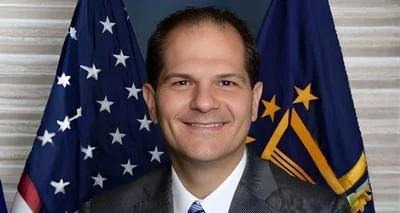Chicago Police Department
Chicago Police Department
In a wrongful conviction case surrounding the 40-year-old murders of two Chicago police officers, a federal judge rejected a defense argument to dismiss the case because the Torture Inquiry & Relief Commission (TIRC), which set in motion the release of one of the convicted murderers, Jackie Wilson, was unconstitutional.
A separate wrongful conviction case before a Will County judge where TIRC’s constitutional authority is likewise being challenged is still active.
In the first case, federal Judge Franklin Valderrama ruled in part that an assistant state’s attorney at the time of the murders of the two police officers, Larry Hyman, a defendant in the case, lacked standing to challenge TIRC’s constitutionality.
Judge Valderrama cited article III of the U.S. Constitution that “limits the jurisdiction of the federal courts to ‘cases’ and ‘controversies.’”
“The case-or-controversy requirement ensures that the judiciary ‘confines itself to its constitutionally limited role of adjudicating actual and concrete disputes, the resolutions of which have direct consequences on the parties involved,” the judge wrote in his ruling.
The judge also deflected Hyman’s arguments that the 2009 act establishing TIRC is an unconstitutional executive infringement on the judiciary, and that it falls short of complying with a victims’ rights provision in the state constitution.
Wilson was sentenced to life in prison in 1989 after being convicted a second time, in a trial separate from his brother Andrew (now deceased), for O’Brien’s murder.
In 2015, TIRC set in motion Wilson’s release from prison when it referred his case to a judge for a new evidentiary hearing –a referral based on claims by Wilson that he was tortured into confessing.
In the other case in Will County, special prosecutor Maria McCarthy has asked a Will County Judge David Carlson to dismiss the TIRC’s referrals for new evidentiary hearings of two convicted murderers. Both Devon Daniels, convicted of a 1996 double murder, and Kevin Murray, convicted of a 1987 double murder, claim that then investigating detective Kriston Kato beat them into confessing.
The case is being tried in Will County due to a conflict in Cook County.
TIRC, McCarthy writes in her memorandum to the court, lacks both the constitutional and statutory authority to refer the cases - as it did in these and many other cases - where police abuse is alleged.
“The plain language of the TIRC Act and the ARL [Illinois Administrative Law], when read together, do not provide a legal basis for evidentiary hearings under the TIRC Act,” McCarthy writes.
She further writes that TIRC referrals are not “justiciable matters,” where “parties with concrete and adverse legal interests have litigated those interests in a civil forum.” This leaves a court with no “subject matter jurisdiction to conduct any review of those determinations under the TIRC Act.”
And she writes that the TIRC Act violates the separation of powers provision in the state constitution; it undermines the judiciary’s authority to dismiss a TIRC claim prior to an evidentiary hearing.
The legislature created TIRC in 2009 in the wake of the much-publicized allegations of abuse by Commander Jon Burge, convicted in 2010 of perjury surrounding the allegations. Burge died in 2018. Since then, dozens of wrongful conviction cases have been brought, and settled, over claims of police abuse. Many began their legal journeys at TIRC.
But the commission has been criticized by the families of victims, law enforcement, and some in the legal community for its lack of transparency and aggressive, unprecedented use of extraordinary judicial powers.






 Alerts Sign-up
Alerts Sign-up